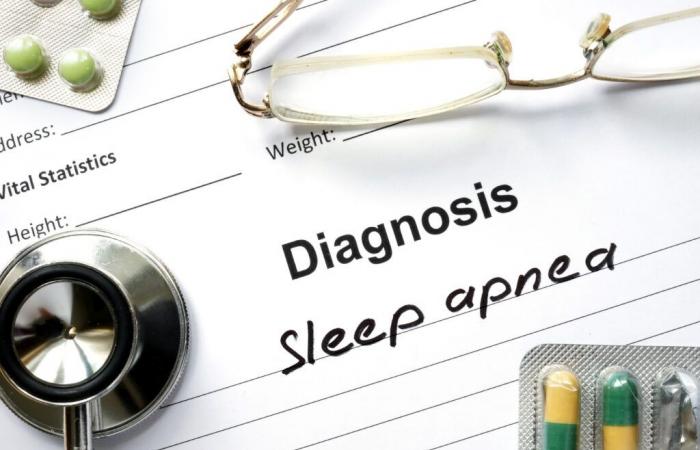Sleep apnea or obstructive sleep apnea syndrome (OSAS) is a sleep disorder in which the muscles in the back of the throat relax and the upper airways narrow or close, limiting oxygen supply. and causing repeated awakenings throughout the night. The disease is thus characterized by a closure of the upper airways from the back of the nose to the throat, repetitively during sleep, which limits oxygen intake and causes awakenings at a rate of 100 or more times per hour. . Previous research has already suggested that people with untreated sleep apnea are more likely to develop cardiovascular disease, dementia and depression.
While apnea is a common disorder, it is both underdiagnosed and insufficiently treated. The cause is limited treatment options and standard treatment, continuous positive airway pressure (CPAP), which remains poorly tolerated by 50% of patients.
The study which reaffirms the association of OSA and a significantly increased risk of dementia, particularly in women, should raise awareness for the detection and treatment of this sleep disorder. This analysis of sleep characteristics and cognitive screening data from more than 18,500 participants, which made it possible to clarify the possible effect of OSA on the risk of dementia, finds that:
- in participants aged 50 and older, a history of obstructive sleep apnea or its symptoms were associated with a higher risk of signs or diagnosis of dementia in subsequent years;
- if the overall difference in incidence of dementia diagnoses between participants with OSA and participants without OSA does not exceed 5%, the association nevertheless remains statistically significant;
- the association between OSA and dementia still holds after taking into account possible confounding factors such as educational level or ethnic origin;
- for each age group, women with known, diagnosed or suspected sleep apnea are more likely than men to be diagnosed with dementia in the years that follow;
- the rate of dementia diagnosis decreases in men and increases in women with age.
What explanations for these differences in association between women and men? The reasons for these sex-specific differences in dementia diagnosis based on sleep apnea, according to the researchers, are not yet known. However, they put forward several possible explanations:
- women with moderate apnea may have a higher risk of cardiovascular disease and are more likely to experience insomnia, 2 documented factors in cognitive impairment;
- estrogen levels begin to decline at menopause, which may also mediate the impact of OSA on the brain;
- After menopause, women are more prone to memory loss, sleep and mood problems which can interact to lead to cognitive decline.
This study thus provides valuable data on the impact of apnea on the development of dementia. With a reminder: there are treatments for OSA and it is therefore an avoidable factorto a large extent.
Sleep is still not included among the risk factors for dementia, yet obstructive sleep apnea and The resulting sleep deprivation and fragmentation are also associated with inflammatory changes in the brain that mechanistically contribute to cognitive impairment.
Health






